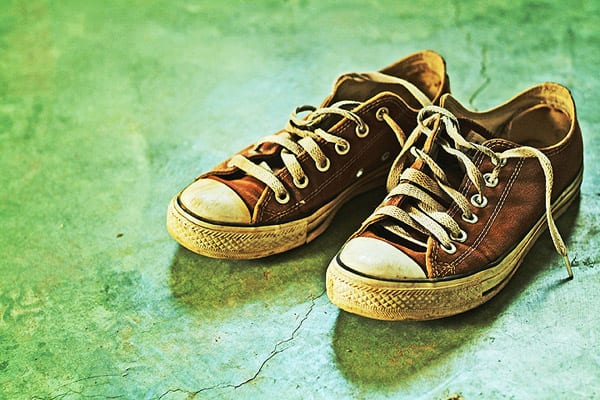
I have a friend- let’s call her Elizabeth. She is eight years old and attends a D.C. public school, and I spend time with her twice a week.
A few weeks ago, Elizabeth was complaining about how uncomfortably small her shoes were. When I asked if she had another pair she could wear, Elizabeth said that she didn’t and her mom couldn’t buy her a new pair. And that was that. I later learned that Elizabeth’s single mother had recently lost her job, meaning that buying those new pair of shoes was probably the least of her concerns.
Unfortunately, situations like these are more common than you might think. Today, 46 million Americans are living in poverty, including 16.1 million children. Like Elizabeth, these kids are going without things like books, childcare, healthy foods, and clothing- things that most of us simply take for granted.
A child living in poverty in the United States will probably wake up in the morning hungry. They will put on clothes that their growing bodies have likely outgrown, and leave for school without grabbing breakfast or lunch. Luckily, most children living in poverty qualify for free or discounted school breakfast and lunch- perhaps their only meals of the day.
Let’s say that this family does not own a vehicle. The child has to rely on public transportation to get to school. If the child is late, they risk missing the school’s breakfast, meaning they will not eat until lunch. Children living in poverty are under so much stress that even if they do make it for breakfast, they may find it hard to concentrate in school. Due to a combination of these factors, children that live below the poverty line are 1.3 times more likely to have developmental delays or learning disabilities than those who don’t live in poverty, making school difficult.
Perhaps when the child gets home from school, there are no parents around because they spend the night working late at a minimum or low-wage job. This means that no one is there to make sure that the child finishes homework, eats dinner, and lives a healthy lifestyle. Parents who face chronic economic hardship are much more likely to experience severe stress and depression, which is linked to poor social and emotional outcomes for children.
It seems to me that these 16.1 million children deserve better from a country as wealthy as ours.
When I heard about my friend’s situation, I wanted to know how we- community members, Government officials, organizations, and neighbors- can help with these sorts of issues. What can we do to reverse the effects of childhood poverty?
According to the Children’s Defense Fund, to end childhood poverty as a nation we must push to invest in high quality education for all children, livable wages for families, more job training, and support for child care.
So what does that mean?
Well for a start, it means increasing the minimum wage. Children are raised by adults; they depend on adults to provide for them and to keep them safe. More than 25% of those making minimum wage are earning half of their families’ total income, and it is nearly impossible to survive on the current minimum wage. So how do we reduce poverty in general, thereby cutting down on childhood poverty? We raise the minimum wage and index it to inflation.
We also need to help people juggle being workers and parents, meaning demanding greater work flexibility and paid time off. As it is today, three out of every four low-wage workers does not receive any paid sick days. Because of this, parents are losing significant amounts of income when they take time off because they are sick or need to care for a sick child.
Children living in poverty usually miss out on good childcare while they are young, putting them a step behind their peers. We need to develop more childcare and assistance options for low and middle-income families, because as it is, the largely privatized childcare system in the U.S. is not a realistic option for many of these families.
While I realize that maybe each of us individually may not have the power to pass new laws or raise the minimum wage, we can still do our part to make sure these things happen. We can contact our local congressmen and let them know that we demand change for the sake of these 16.1 million children. We need to let them know that this is a top priority of the American people.
We can also do our part by regularly donating food to our local food banks that supply poverty-stricken children with the food they need. We can get involved with homeless shelters to do more on a personal level. We can join the Big Brother and Big Sister programs to help mentor these children. We just need to do something because children should not have to walk in shoes two sizes too small.
To learn more about the fight against poverty, click here to join our Fight Poverty NOW campaign.
